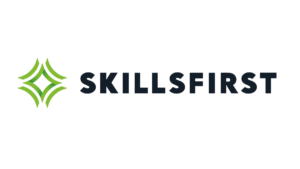LGBTHC2 – VTCT (Skillsfirst) Level 2 Certificate in LGBT Inclusivity in a Health and Social Care Environment (RQF)
Qualification summary
This qualification has been developed for learners who need to be more aware of how to comfortably interact with and support lesbian, gay, bisexual and trans (LGBT) people in a health and social care environment.
It has been designed to make learners aware of the LGBT history and culture and the impact of language, stereotyping and assumptions relating to LGBT people. It also explores the barriers to care for LGBT people and how cultural beliefs, religion, faith and values can impact on LGBT people. It also looks at the collection of LGBT personal data and information and considers how to promote mental well-being for LGBT people.
The qualification also covers specialist areas of care which relate to a LGBT person with learning difficulties, dementia or requiring end of life care.
The range of units contained in this qualification will enable the learner to gain an understanding of the history and culture of the LGBT movement, some of the barriers to receiving care, as well as the importance of using appropriate language, not stereotyping nor making assumptions about LGBT people. It also enables the learner to know the need for LGBT personal data and information to be collected, the need for positive partnership working for LGBT people receiving care and how to promote and support mental well-being for LGBT people. The learner will also gain an understanding in how cultural and religious beliefs impact on LGBT people receiving care and how stigma and discrimination negatively impacts the mental health of LGBT people.
The specialist units contained in this qualification will enable the learner to gain an understanding of how to provide support to LGBT people with a learning disability, how dementia impacts on LGBT people and how to respond sensitively to the wishes of an LGBT person at end of life.
This qualification could also prove invaluable toward the learner’s personal and career development and it does not require the learner to have any prior qualifications or levels of prior learning.
To support the delivery of this qualification, we are offering Train the Trainer workshops
On completion of this qualification, you may progress into further learning, employment or onto other VTCT (Skillsfirst) qualifications, such as the:
- VTCT (Skillsfirst) Level 2 Certificate in LGBT Inclusivity in the Workplace (RQF)
- VTCT (Skillsfirst) Level 2 Diploma in Care (RQF)
or similar vocationally-based qualifications.
Related Documents:
Qualification structure
All 9 modules from Group M must be achieved to gain the qualification.
Guided Learning Hours (GLH) are 200
Total Qualification Time (TQT) is 242
| Qualification number | Qualification reference |
| LGBTHC2 | 603/5552/9 |
Group M – mandatory modules
| RQF unit n. | Skillsfirst module no | Module title | Unit Level | GLH Value |
| M/617/8631 | LGBT1 | Lesbian, gay, bisexual and trans history and culture | 2 | 24 |
| T/617/8632 | LGBT2 | Language, stereotyping and assumptions relating to lesbian, gay, bisexual and trans people | 2 | 28 |
| Y/617/9580 | LGBT5 | Barriers to care for LGBT people | 2 | 25 |
| D/617/9581 | LGBT6 | Collecting LGBT personal data and information | 2 | 31 |
| H/617/9582 | LGBT7 | Cultural beliefs, religion, faith and values and their impact on LGBT people | 2 | 21 |
| K/617/9583 | LGBT8 | Promote well-being for LGBT people | 2 | 25 |
| M/617/9584 | LGBT9 | Support LGBT people with learning disabilities | 2 | 30 |
| T/617/9585 | LGBT10 | Living with dementia as an LGBT person | 2 | 24 |
| A/617/9586 | LGBT11 | Support a LGBT person at the end of life | 2 | 24 |
To find out more, please contact our customer services team on 0121 270 5100 or email us

